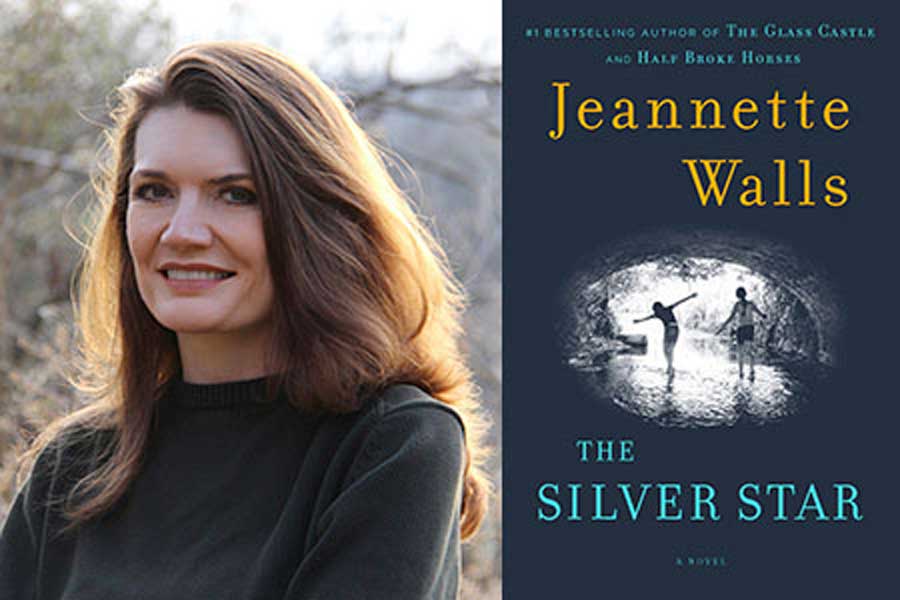How will “The Silver Star” end?
Jeanette Walls and her book
There’s something you must know. Half way through “The Silver Star,” I read the ending. I wanted to know how the narrator and her sister landed, and I couldn’t stand the suspense. Perhaps you’ll fare better.
Two teen-aged sisters, Bean and Liz, unable to trust their mother to care for them, decide to take control of their own destinies. For the most part, they land on their feet, but as this story develops, their adult/child relationships get more complicated and diverse. Friends, acquaintances, or relations either muck up or bless their lives—sometimes simultaneously—as Bean and Liz try to support themselves day by day in a small Southern community.
Love comes while Bean and Liz pick chestnuts, meet emus, and share venison. Evil comes when they err in trusting that all adults are kind. But Bean and Liz stand up for themselves, and there’s no doubt about their integrity. Integrity is a strong theme in The Silver Star, and Walls crafts her characters based on whether they have integrity or not. It’s unclear, sometimes, who to root for, except for the girls. You always root for the girls.
Walls gives Bean and Liz a great amount of power at a young age—powerful voices, and powerful reasoning capabilities. Because the narrator, Bean, never sees herself or her sister as a victim, we don’t see them that way either. And yet, their circumstances are very trying. Why don’t the abandonment, abuse, and neglect they face come to the foreground and take over the story? Because Walls won’t allow Bean and Liz to be overcome—tested, pushed around, and knocked down, yes, but never overcome.
Walls has her own poignant history regarding her childhood years. We have her memoir The Glass Castle in our stacks. She knows what she’s talking about, and she knows how to represent truth in a way that is believable despite its seeming over the top. But because the truths are hard in The Silver Star, there’s not much softness to spare for Walls’ characters. How can we as caring observers provide Bean and Liz the many forms of nourishment they lack? We can’t. We can be drawn up in this book, and we can stomp around because of it. But we can’t change the way it’s written.
Walls creates a good story. Her language is plain and compelling, and it is oddly believable. You can imagine that there are two sisters out there living this exact kind of life. The thing is that Walls doesn’t create Bean and Liz to be rescued. I think instead she’s telling us something very different. You can live through adversity without champions and still have your life force fully intact. For many children, rescue doesn’t happen and they are still productive, loving, and capable human beings. It doesn’t make it okay. It does, however, offer hope.






